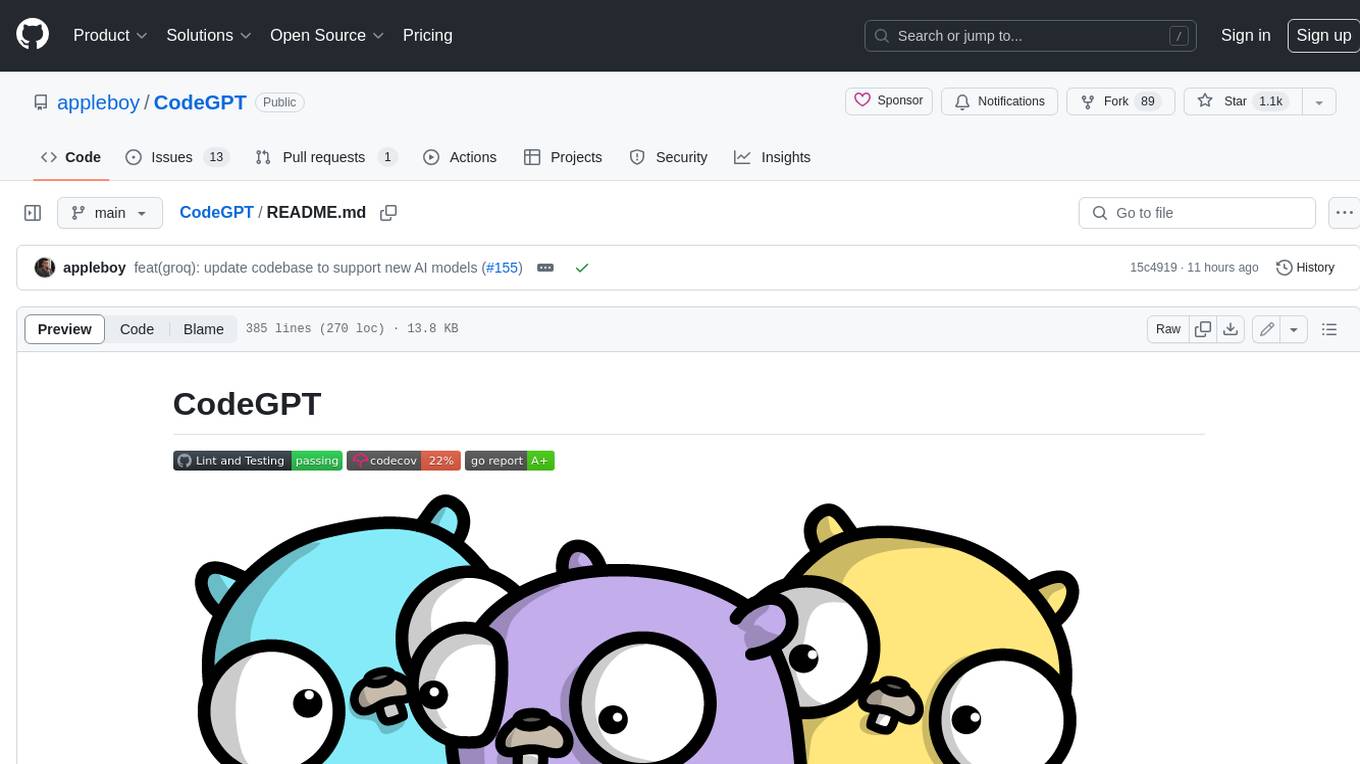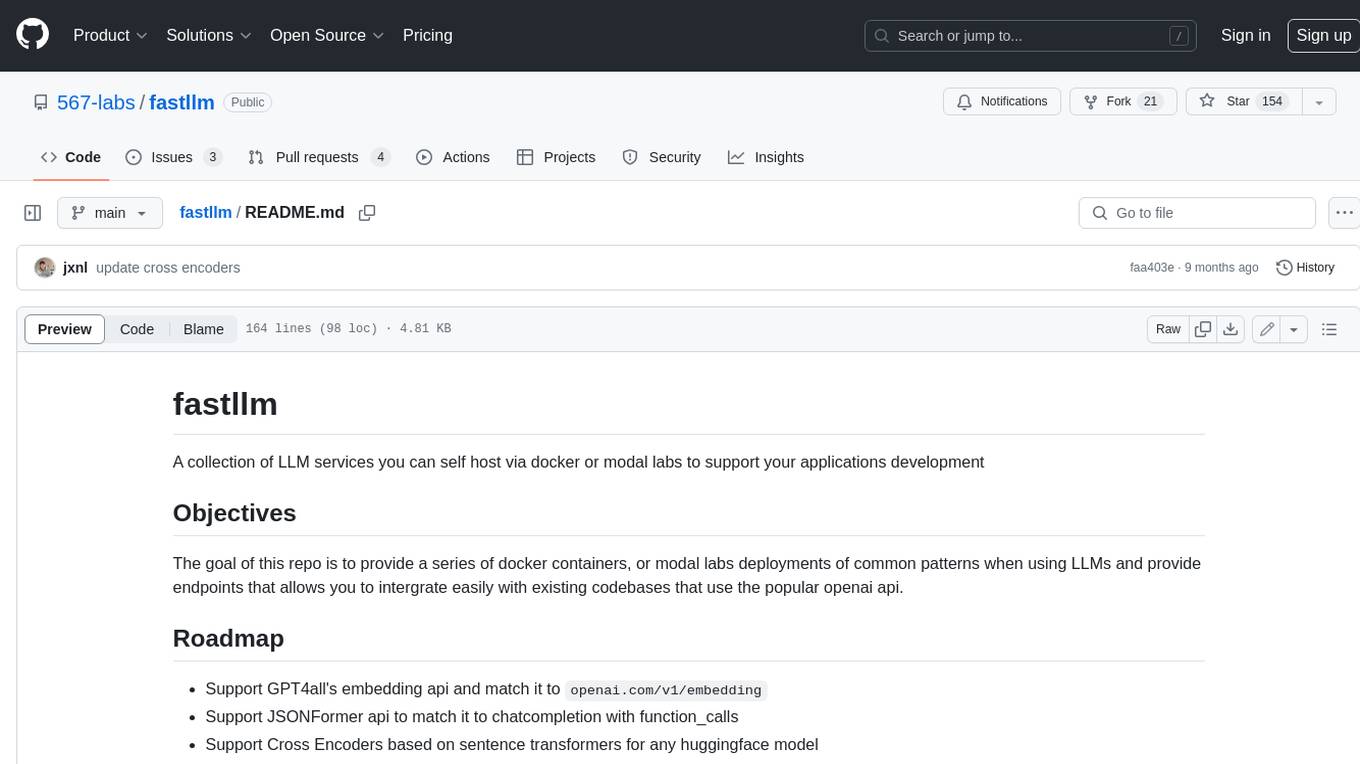AI tools for SCM outsourcing
Related Tools:

SCM Chat
Chat-driven supply chain wisdom powered by live data and trained on news, tutorials and resources.
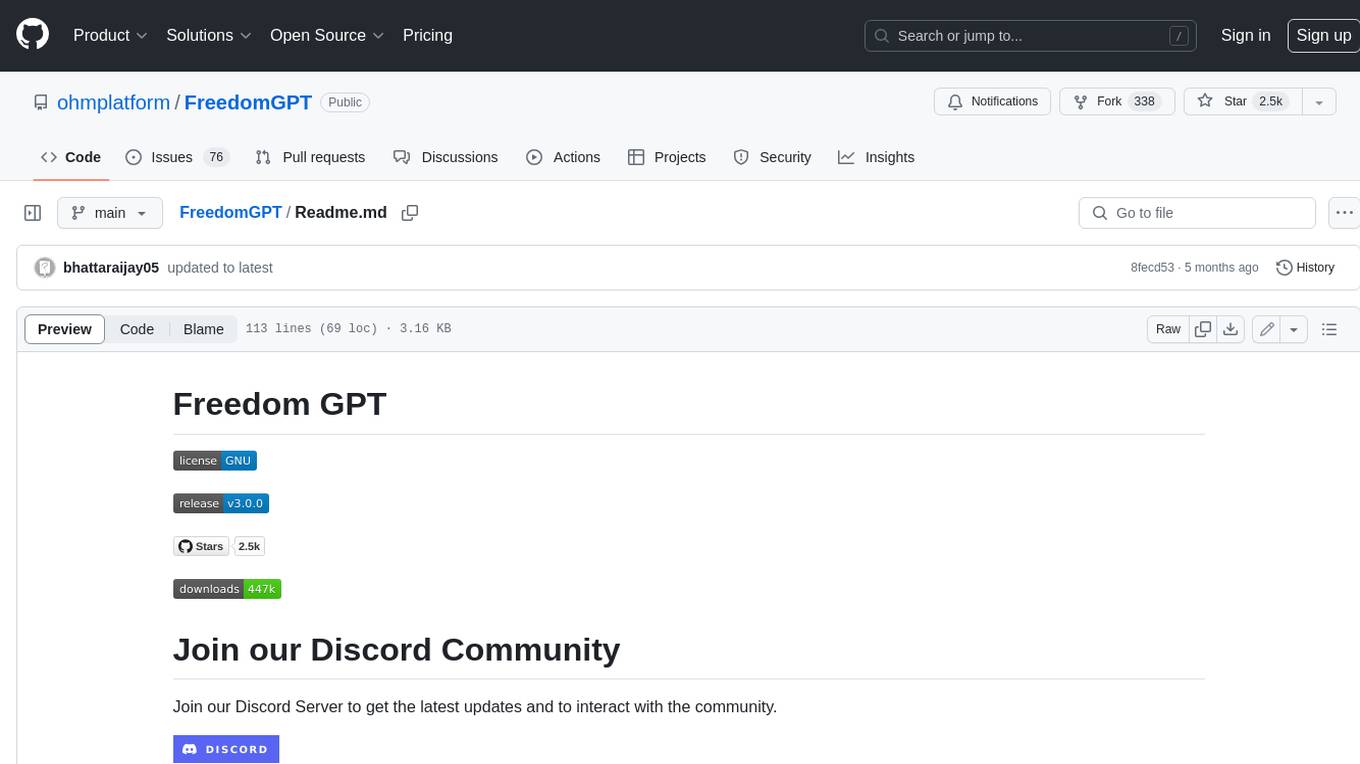
FreedomGPT
Freedom GPT is a desktop application that allows users to run alpaca models on their local machine. It is built using Electron and React. The application is open source and available on GitHub. Users can contribute to the project by following the instructions in the repository. The application can be run using the following command: yarn start. The application can also be dockerized using the following command: docker run -d -p 8889:8889 freedomgpt/freedomgpt. The application utilizes several open-source packages and libraries, including llama.cpp, LLAMA, and Chatbot UI. The developers of these packages and their contributors deserve gratitude for making their work available to the public under open source licenses.
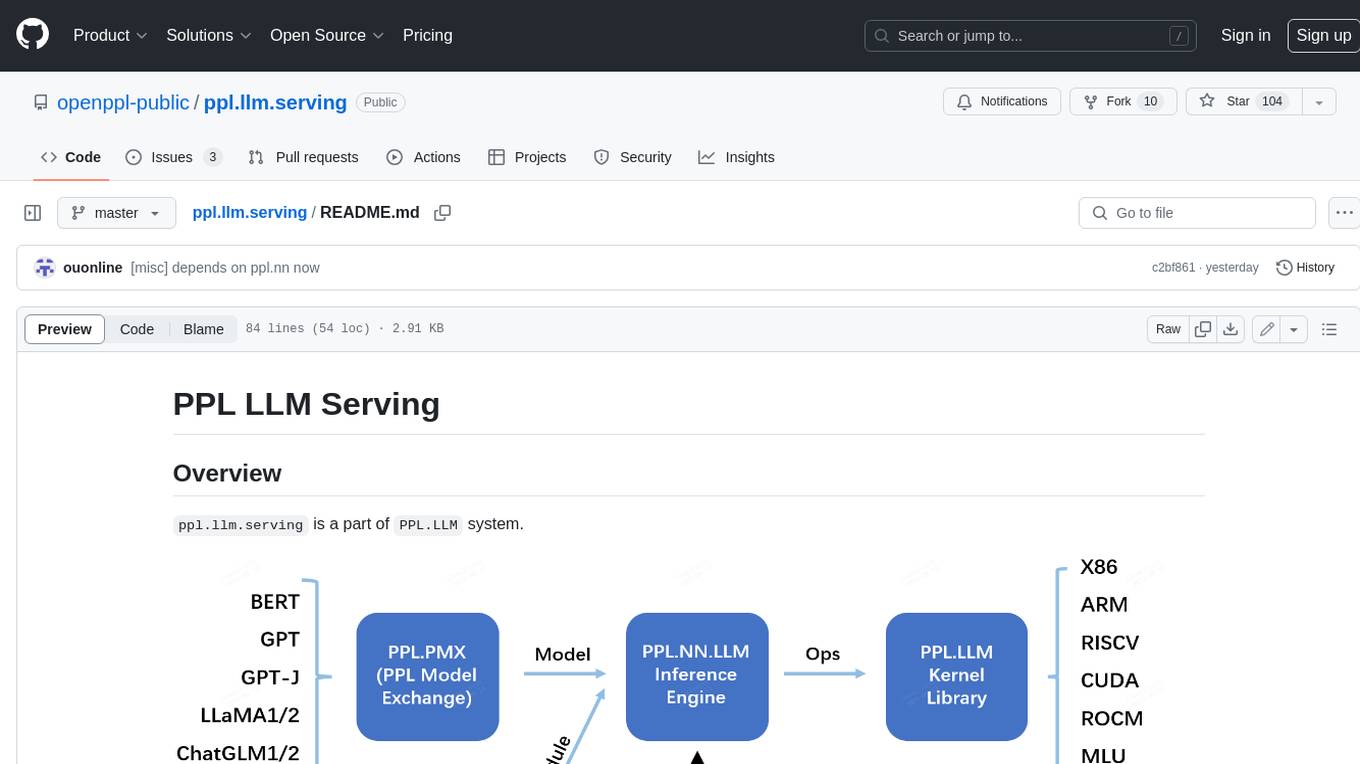
ppl.llm.serving
PPL LLM Serving is a serving based on ppl.nn for various Large Language Models (LLMs). It provides inference support for LLaMA. Key features include: * **High Performance:** Optimized for fast and efficient inference on LLM models. * **Scalability:** Supports distributed deployment across multiple GPUs or machines. * **Flexibility:** Allows for customization of model configurations and inference pipelines. * **Ease of Use:** Provides a user-friendly interface for deploying and managing LLM models. This tool is suitable for various tasks, including: * **Text Generation:** Generating text, stories, or code from scratch or based on a given prompt. * **Text Summarization:** Condensing long pieces of text into concise summaries. * **Question Answering:** Answering questions based on a given context or knowledge base. * **Language Translation:** Translating text between different languages. * **Chatbot Development:** Building conversational AI systems that can engage in natural language interactions. Keywords: llm, large language model, natural language processing, text generation, question answering, language translation, chatbot development
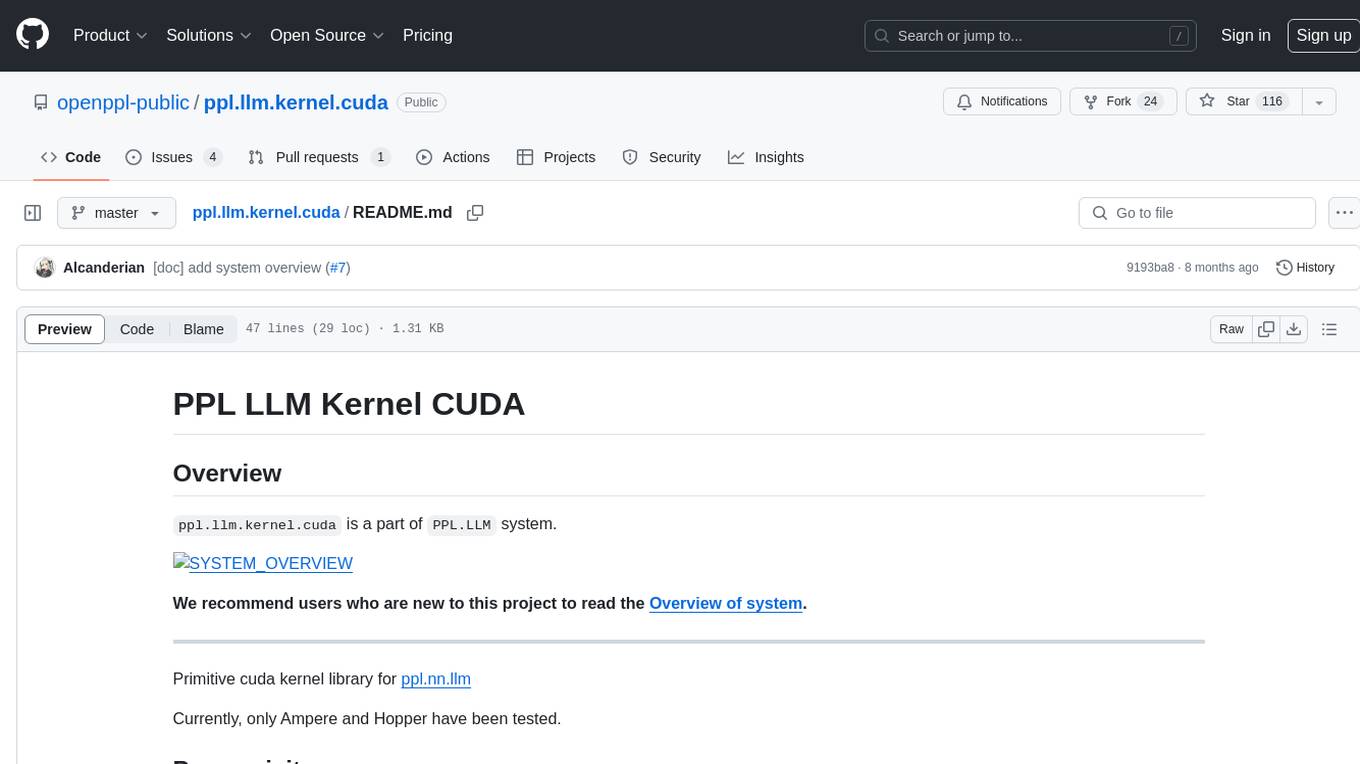
ppl.llm.kernel.cuda
ppl.llm.kernel.cuda is a primitive cuda kernel library for ppl.nn.llm system, designed for Ampere and Hopper architectures. It requires Linux running on x86_64 or arm64 CPUs with specific versions of GCC, CMake, Git, and CUDA Toolkit. Users can follow the provided Quick Start guide to install prerequisites, clone the source code, and build from source. The project is distributed under the Apache License, Version 2.0.
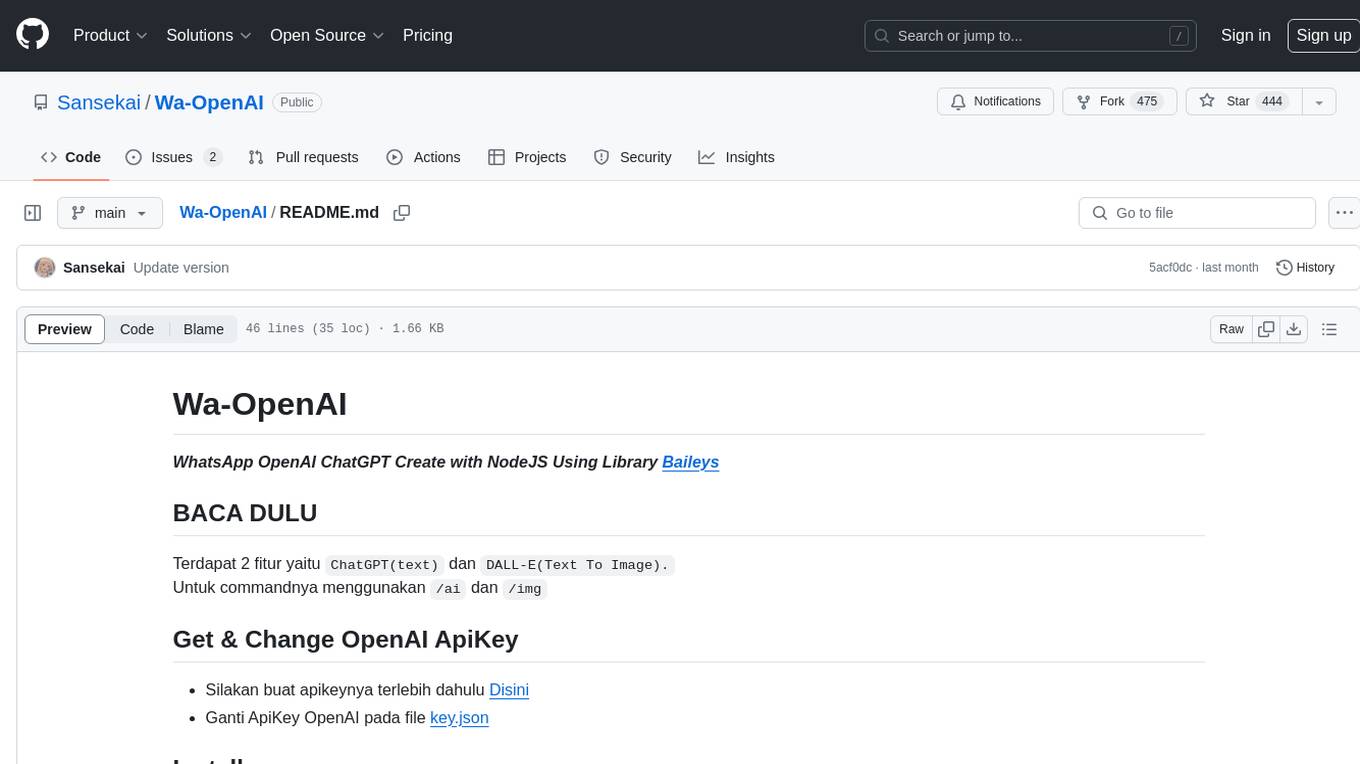
Wa-OpenAI
Wa-OpenAI is a WhatsApp chatbot powered by OpenAI's ChatGPT and DALL-E models, allowing users to interact with AI for text generation and image creation. Users can easily integrate the bot into their WhatsApp conversations using commands like '/ai' and '/img'. The tool requires setting up an OpenAI API key and can be installed on RDP/Windows or Termux environments. It provides a convenient way to leverage AI capabilities within WhatsApp chats, offering a seamless experience for generating text and images.
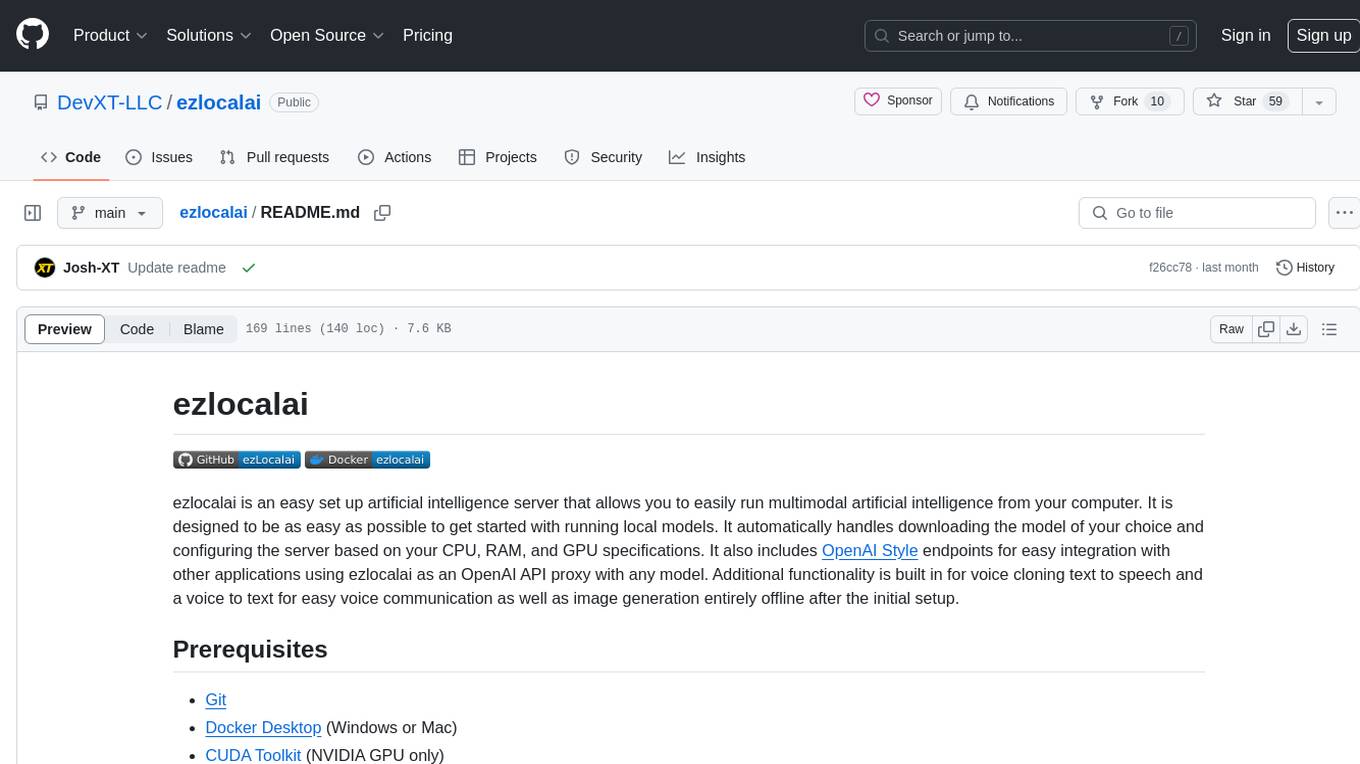
ezlocalai
ezlocalai is an artificial intelligence server that simplifies running multimodal AI models locally. It handles model downloading and server configuration based on hardware specs. It offers OpenAI Style endpoints for integration, voice cloning, text-to-speech, voice-to-text, and offline image generation. Users can modify environment variables for customization. Supports NVIDIA GPU and CPU setups. Provides demo UI and workflow visualization for easy usage.
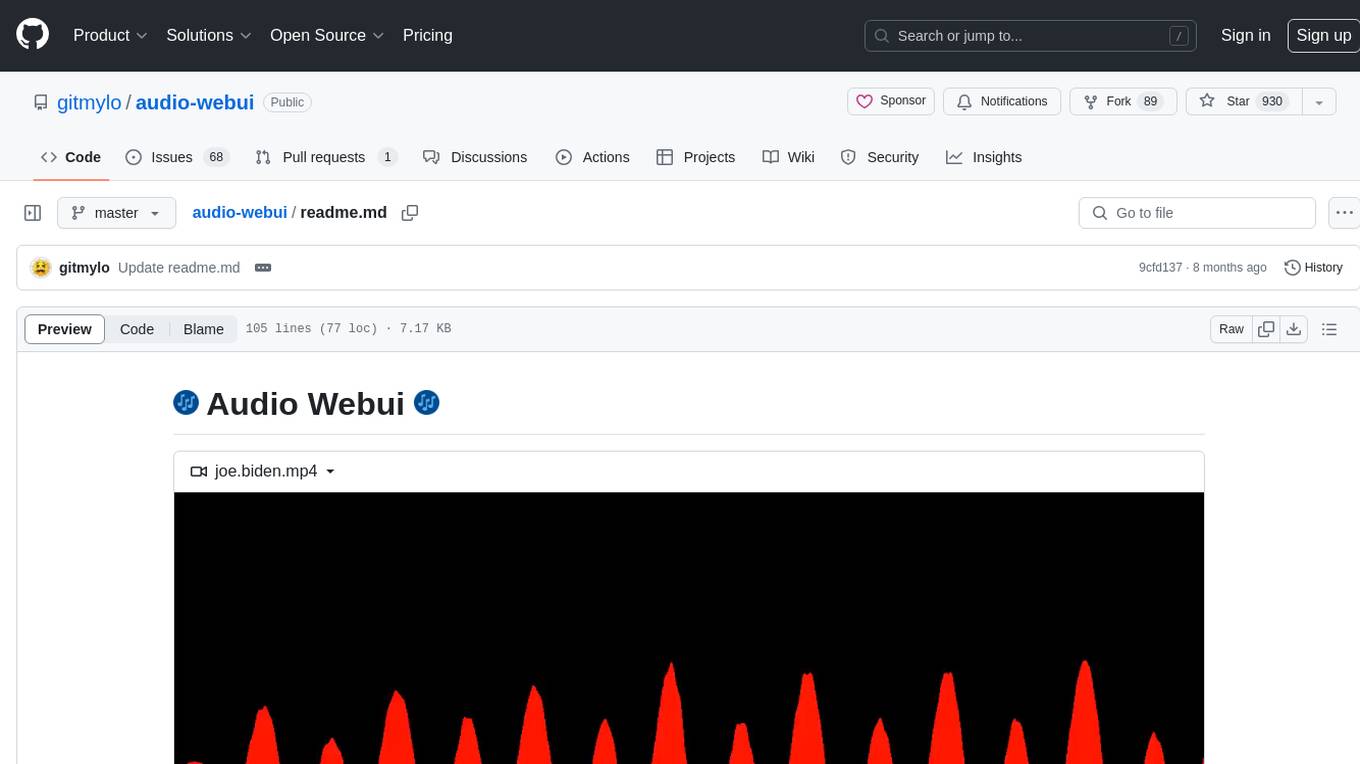
audio-webui
Audio Webui is a tool designed to provide a user-friendly interface for audio processing tasks. It supports automatic installers, Docker deployment, local manual installation, Google Colab integration, and common command line flags. Users can easily download, install, update, and run the tool for various audio-related tasks. The tool requires Python 3.10, Git, and ffmpeg for certain features. It also offers extensions for additional functionalities.
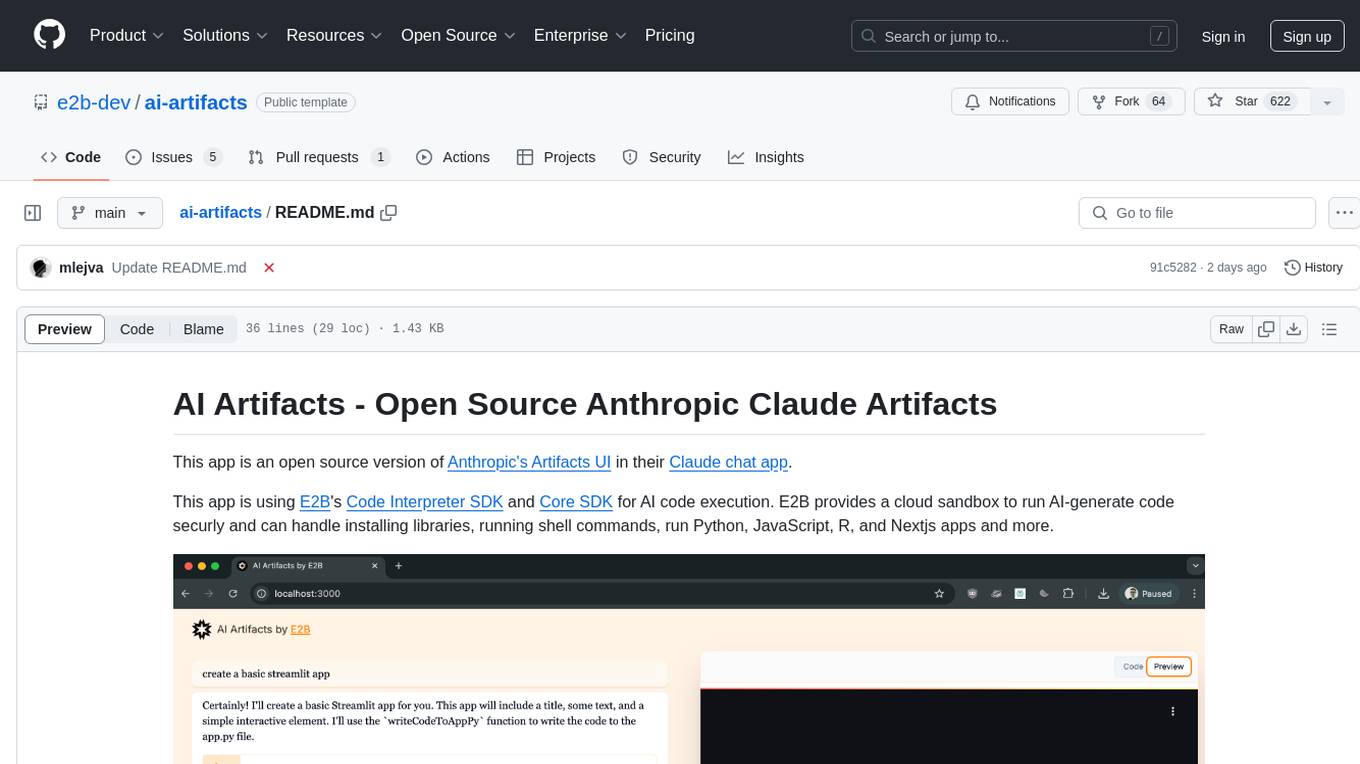
ai-artifacts
AI Artifacts is an open source tool that replicates Anthropic's Artifacts UI in the Claude chat app. It utilizes E2B's Code Interpreter SDK and Core SDK for secure AI code execution in a cloud sandbox environment. Users can run AI-generated code in various languages such as Python, JavaScript, R, and Nextjs apps. The tool also supports running AI-generated Python in Jupyter notebook, Next.js apps, and Streamlit apps. Additionally, it offers integration with Vercel AI SDK for tool calling and streaming responses from the model.
Virtual_Avatar_ChatBot
Virtual_Avatar_ChatBot is a free AI Chatbot with visual movement that runs on your local computer with minimal GPU requirement. It supports various features like Oogbabooga, betacharacter.ai, and Locall LLM. The tool requires Windows 7 or above, Python, C++ Compiler, Git, and other dependencies. Users can contribute to the open-source project by reporting bugs, creating pull requests, or suggesting new features. The goal is to enhance Voicevox functionality, support local LLM inference, and give the waifu access to the internet. The project references various tools like desktop-waifu, CharacterAI, Whisper, PYVTS, COQUI-AI, VOICEVOX, and VOICEVOX API.
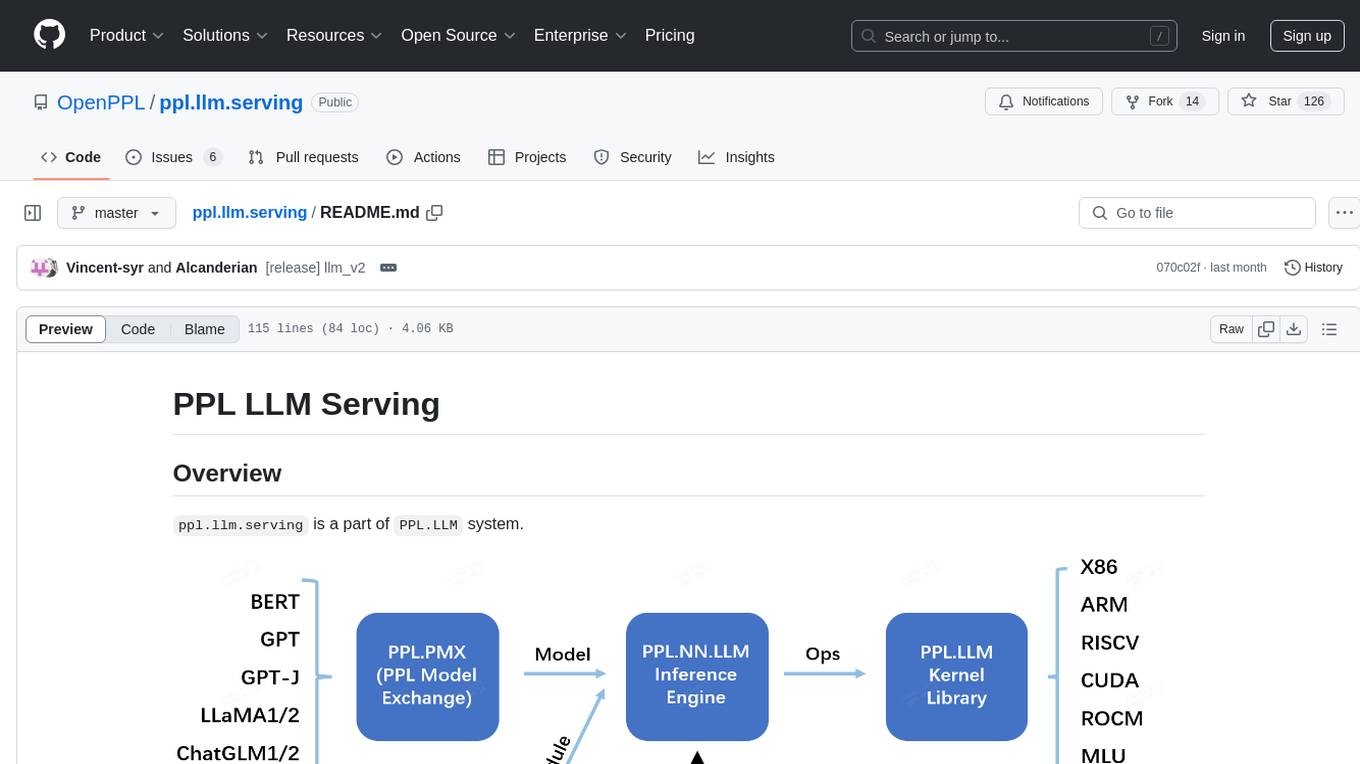
ppl.llm.serving
ppl.llm.serving is a serving component for Large Language Models (LLMs) within the PPL.LLM system. It provides a server based on gRPC and supports inference for LLaMA. The repository includes instructions for prerequisites, quick start guide, model exporting, server setup, client usage, benchmarking, and offline inference. Users can refer to the LLaMA Guide for more details on using this serving component.
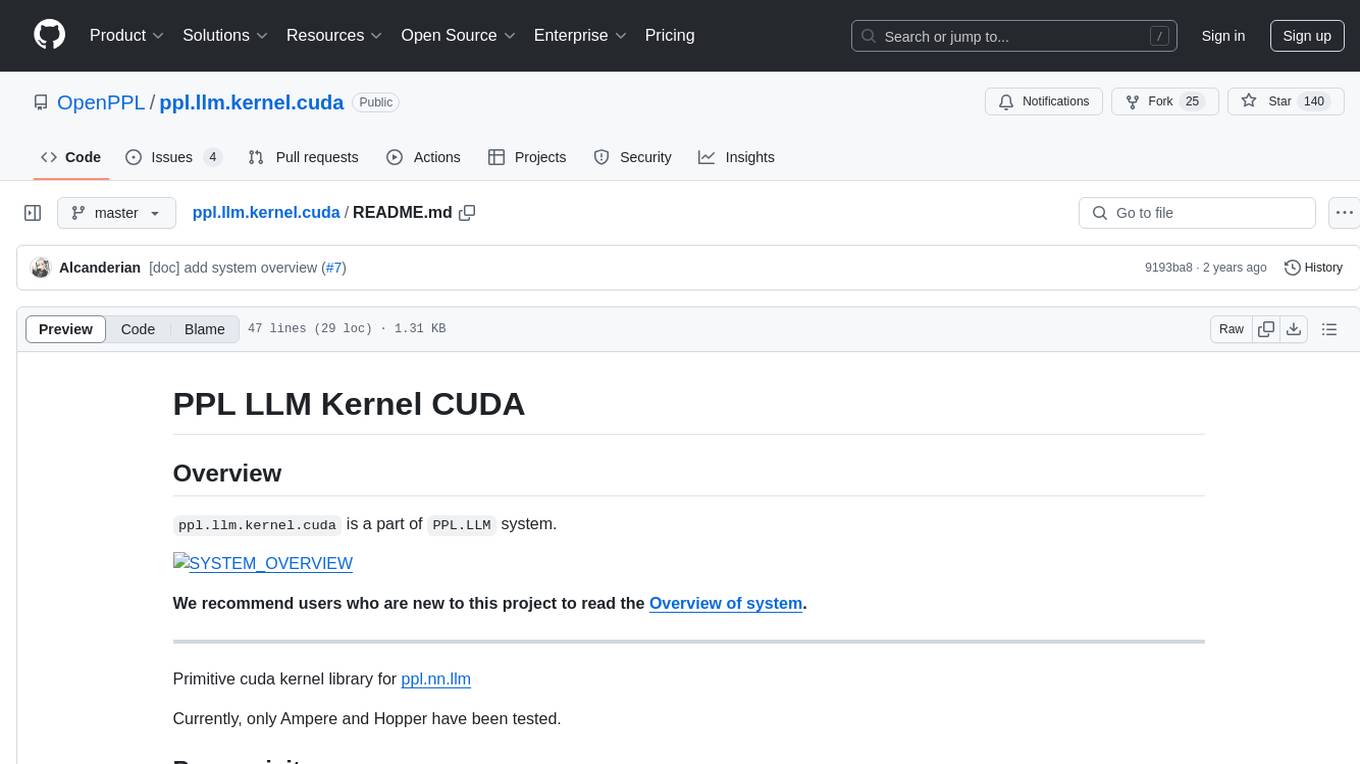
ppl.llm.kernel.cuda
Primitive cuda kernel library for ppl.nn.llm, part of PPL.LLM system, tested on Ampere and Hopper, requires Linux on x86_64 or arm64 CPUs, GCC >= 9.4.0, CMake >= 3.18, Git >= 2.7.0, CUDA Toolkit >= 11.4. 11.6 recommended. Provides cuda kernel functionalities for deep learning tasks.
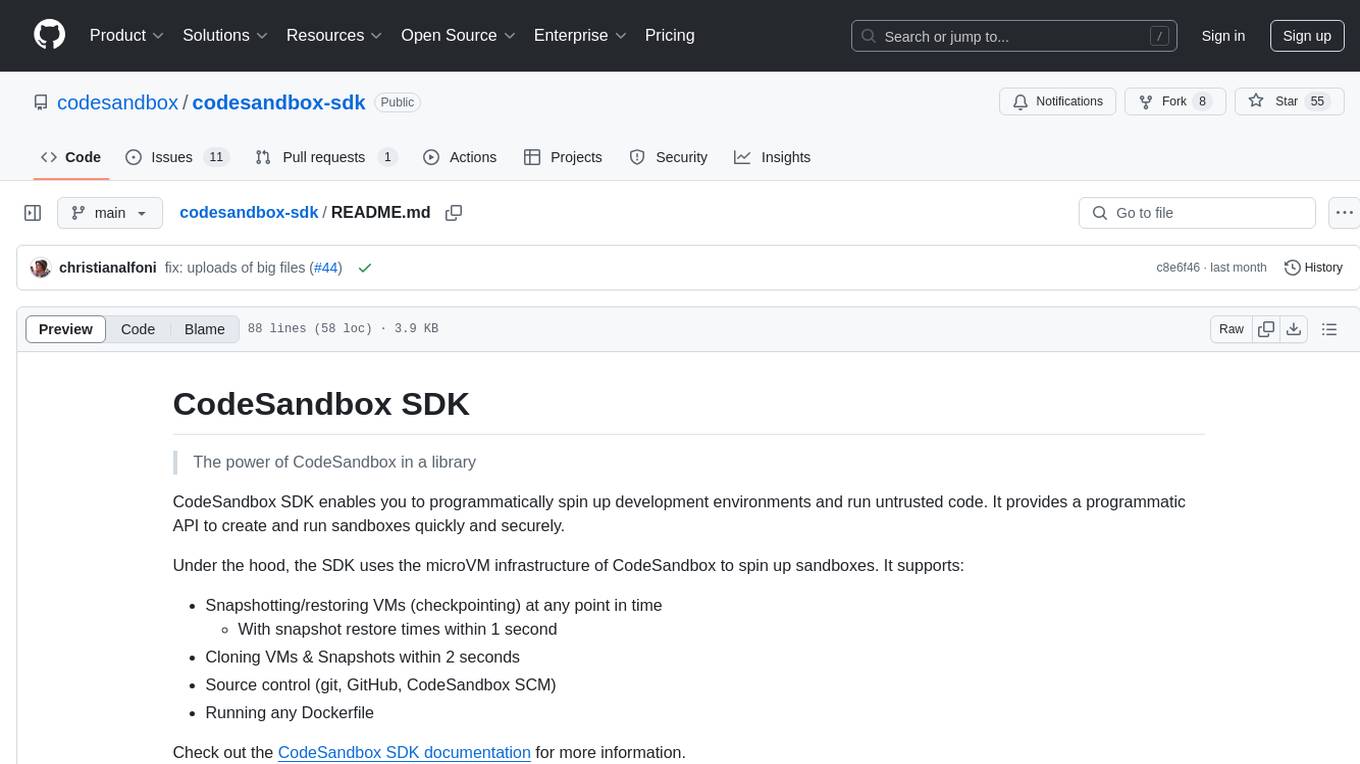
codesandbox-sdk
CodeSandbox SDK enables users to programmatically spin up development environments and run untrusted code securely. It provides a programmatic API for creating and running sandboxes quickly. The SDK uses the microVM infrastructure of CodeSandbox, supporting features like snapshotting/restoring VMs, cloning VMs & Snapshots, source control integration, and running any Dockerfile. Users can authenticate with an API token, create sandboxes, run code in various languages, interact with the filesystem, clone sandboxes, get metrics, hibernate sandboxes, and more. The sandboxes are created inside the user's workspace in CodeSandbox, allowing for controlled environments and resource billing. Example use cases include code interpretation, creating development environments, running AI agents, and CI/CD testing.
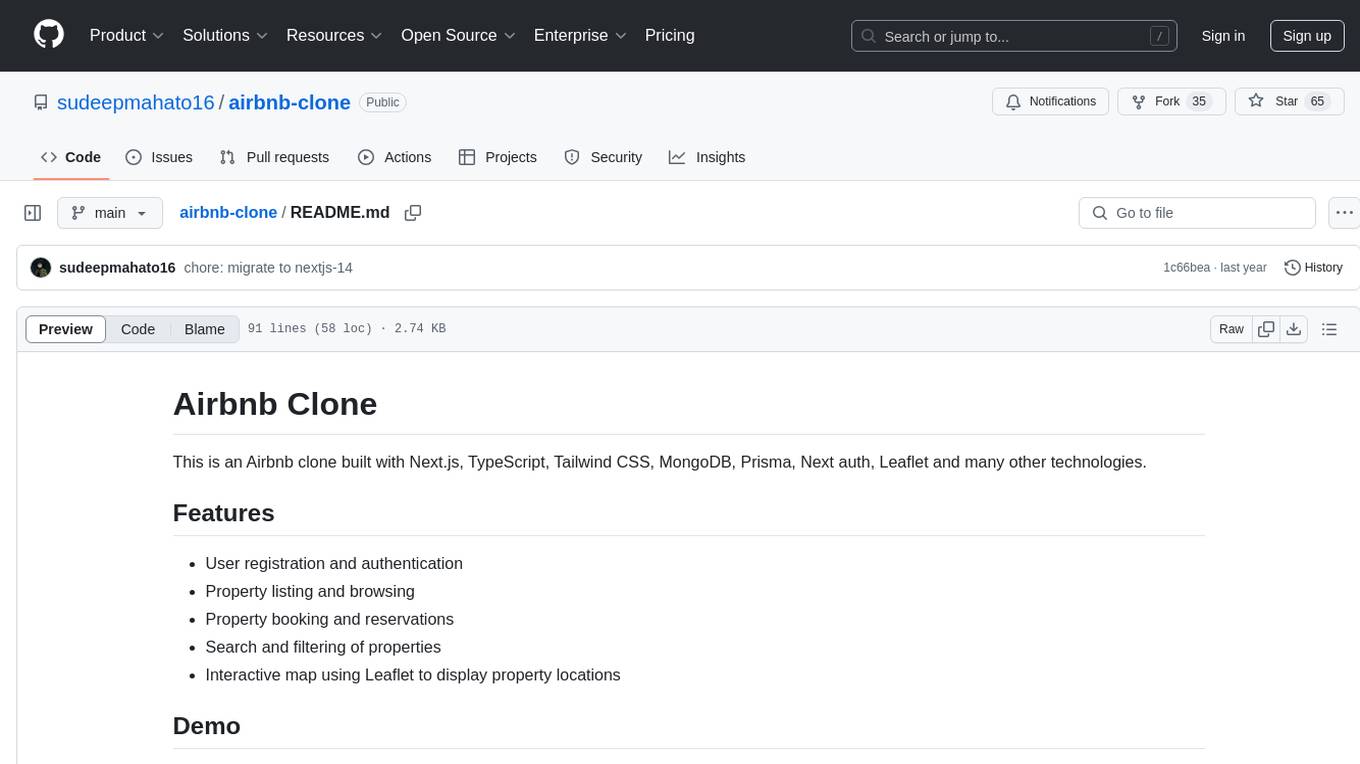
airbnb-clone
This Airbnb clone project is a web application built with Next.js, TypeScript, Tailwind CSS, MongoDB, Prisma, Next auth, and Leaflet. It allows users to register, list and browse properties, make bookings and reservations, search and filter properties, and view property locations on an interactive map.
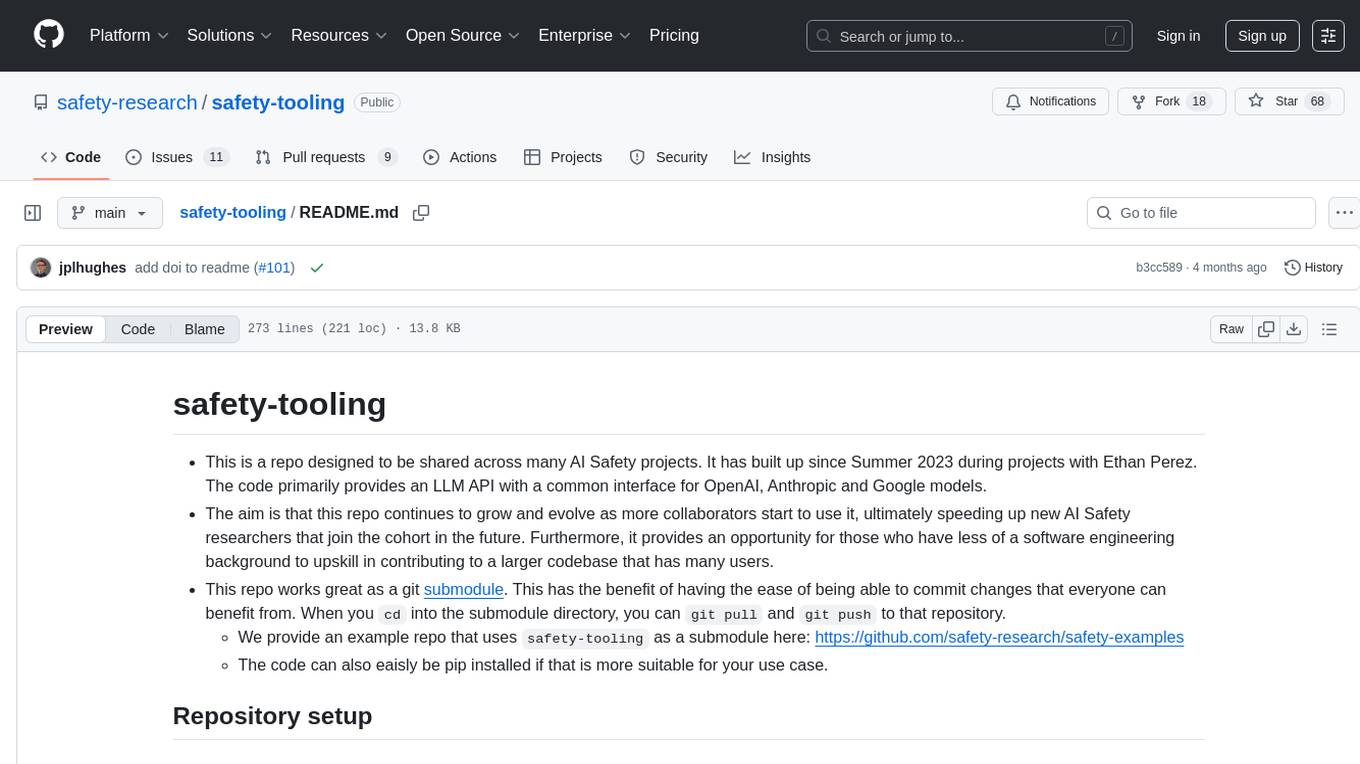
safety-tooling
This repository, safety-tooling, is designed to be shared across various AI Safety projects. It provides an LLM API with a common interface for OpenAI, Anthropic, and Google models. The aim is to facilitate collaboration among AI Safety researchers, especially those with limited software engineering backgrounds, by offering a platform for contributing to a larger codebase. The repo can be used as a git submodule for easy collaboration and updates. It also supports pip installation for convenience. The repository includes features for installation, secrets management, linting, formatting, Redis configuration, testing, dependency management, inference, finetuning, API usage tracking, and various utilities for data processing and experimentation.
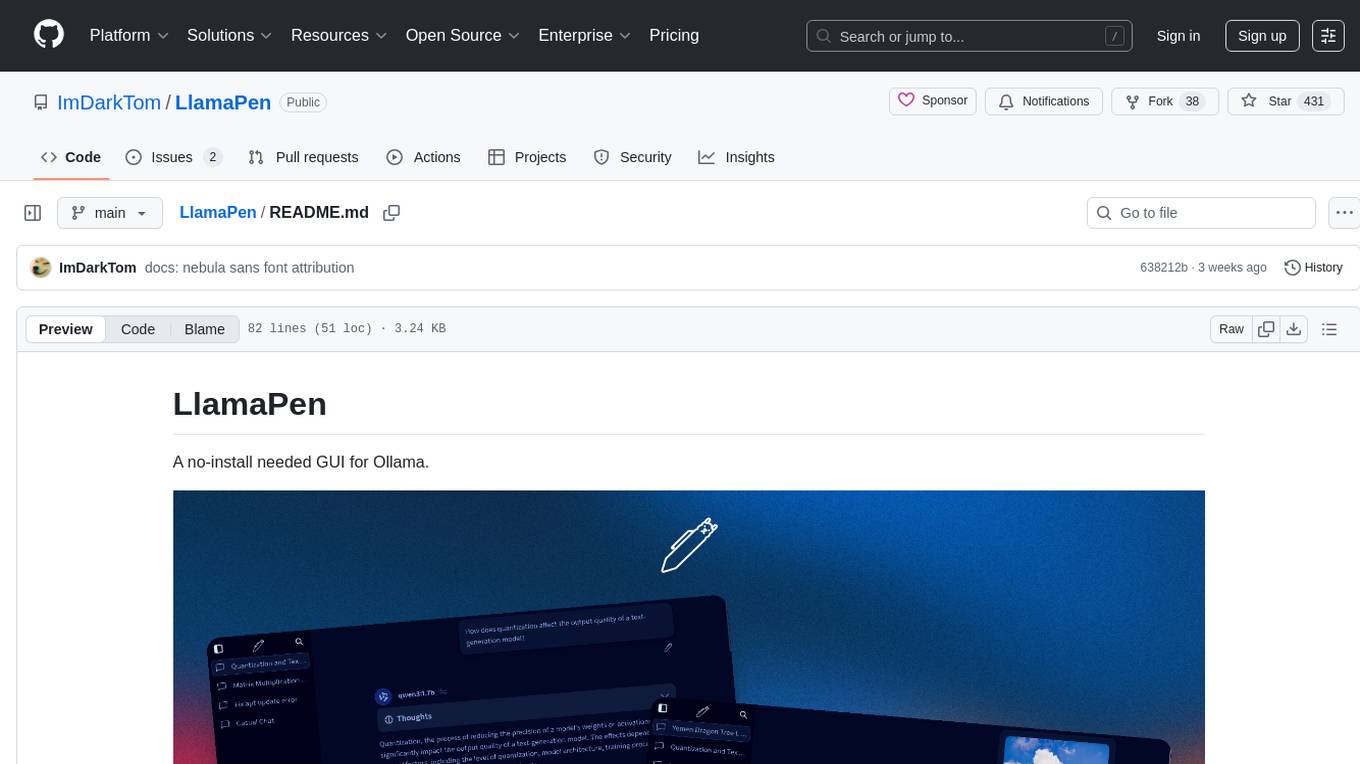
LlamaPen
LlamaPen is a no-install needed GUI tool for Ollama, featuring a web-based interface accessible on both desktop and mobile. It allows easy setup and configuration, renders markdown, text, and LaTeX math, provides keyboard shortcuts for quick navigation, includes a built-in model and download manager, supports offline and PWA, and is 100% free and open-source. Users can chat with complete privacy as all chats are stored locally in the browser, ensuring near-instant chat load times. The tool also offers an optional cloud service, LlamaPen API, for running up-to-date models if unable to run locally, with a subscription option for increased rate limits and access to more expensive models.
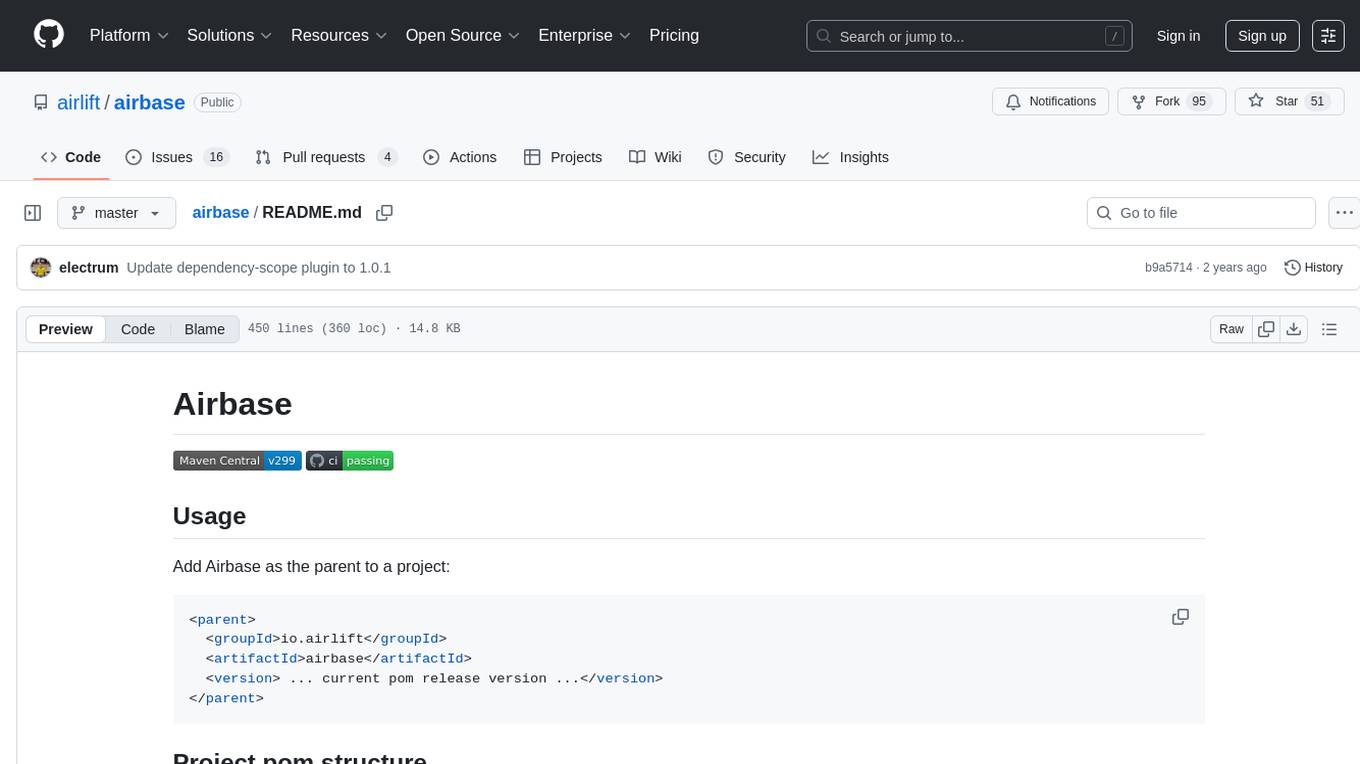
airbase
Airbase is a Maven project management tool that provides a parent pom structure and conventions for defining new projects. It includes guidelines for project pom structure, deployment to Maven Central, project build and checkers, well-known dependencies, and other properties. Airbase helps in enforcing build configurations, organizing project pom files, and running various checkers to catch problems early in the build process. It also offers default properties that can be overridden in the project pom.
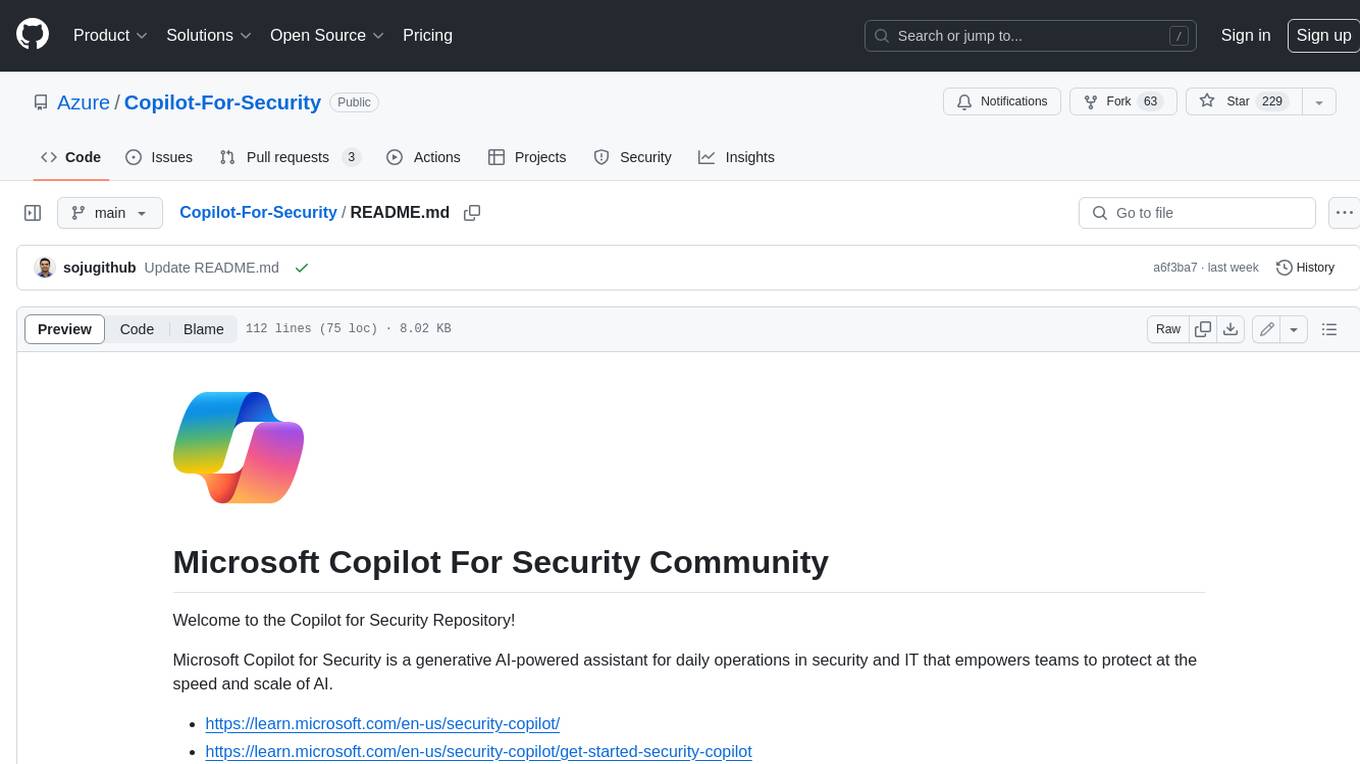
Copilot-For-Security
Microsoft Copilot for Security is a generative AI-powered assistant for daily operations in security and IT that empowers teams to protect at the speed and scale of AI.
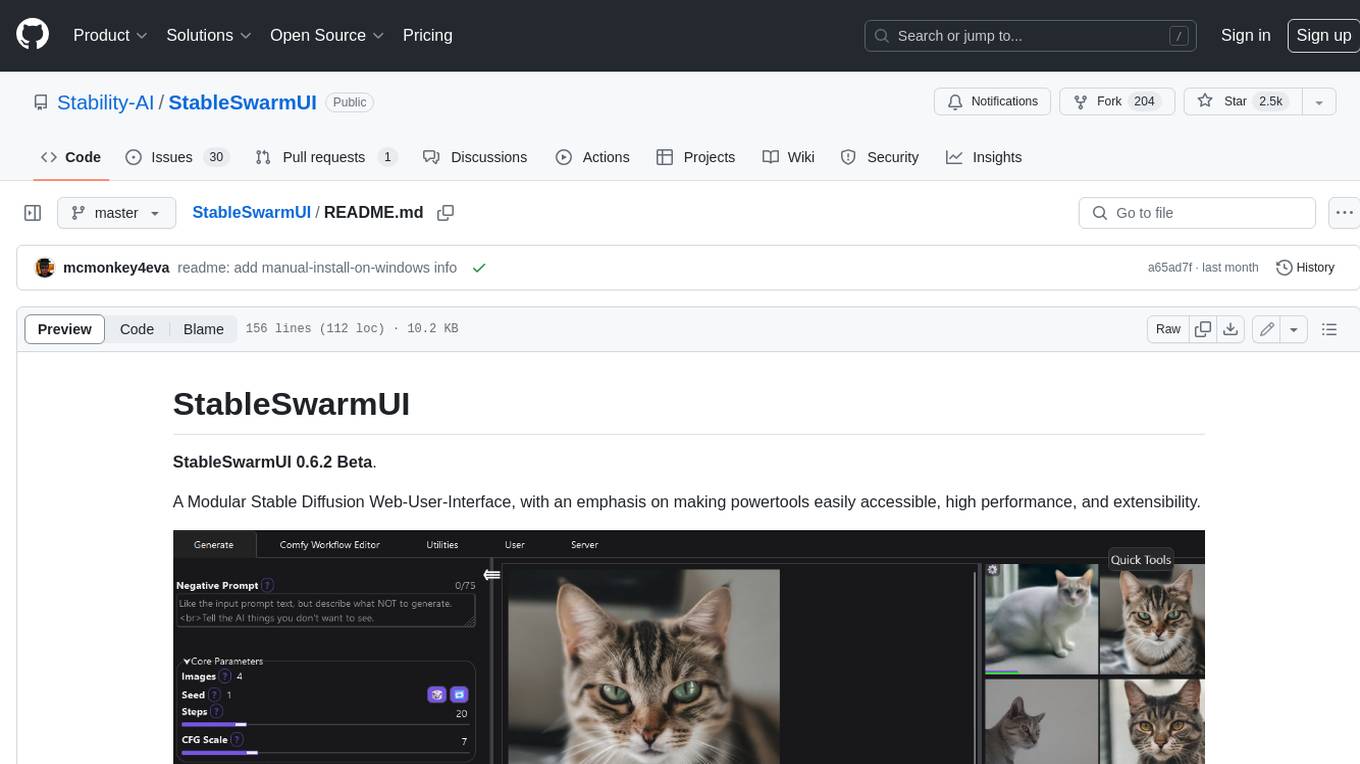
StableSwarmUI
StableSwarmUI is a modular Stable Diffusion web user interface that emphasizes making power tools easily accessible, high performance, and extensible. It is designed to be a one-stop-shop for all things Stable Diffusion, providing a wide range of features and capabilities to enhance the user experience.
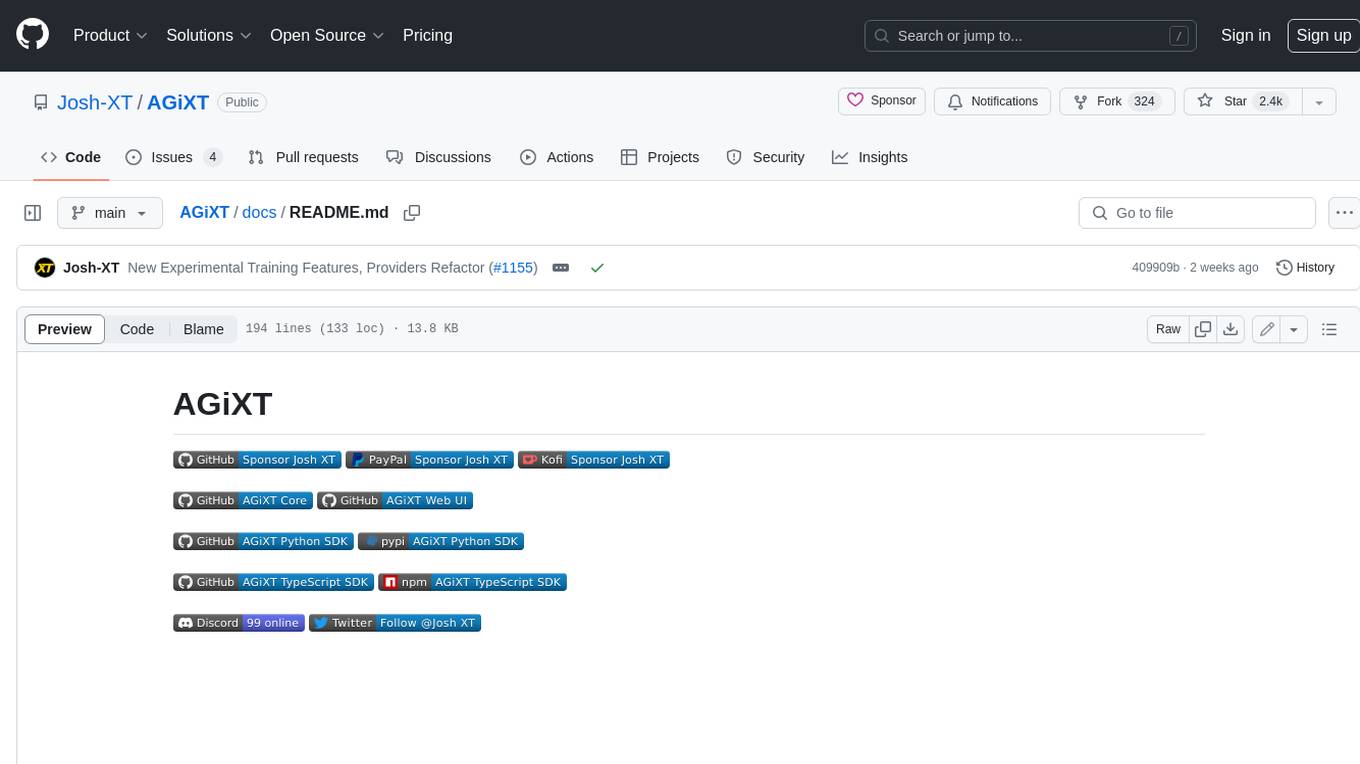
AGiXT
AGiXT is a dynamic Artificial Intelligence Automation Platform engineered to orchestrate efficient AI instruction management and task execution across a multitude of providers. Our solution infuses adaptive memory handling with a broad spectrum of commands to enhance AI's understanding and responsiveness, leading to improved task completion. The platform's smart features, like Smart Instruct and Smart Chat, seamlessly integrate web search, planning strategies, and conversation continuity, transforming the interaction between users and AI. By leveraging a powerful plugin system that includes web browsing and command execution, AGiXT stands as a versatile bridge between AI models and users. With an expanding roster of AI providers, code evaluation capabilities, comprehensive chain management, and platform interoperability, AGiXT is consistently evolving to drive a multitude of applications, affirming its place at the forefront of AI technology.

